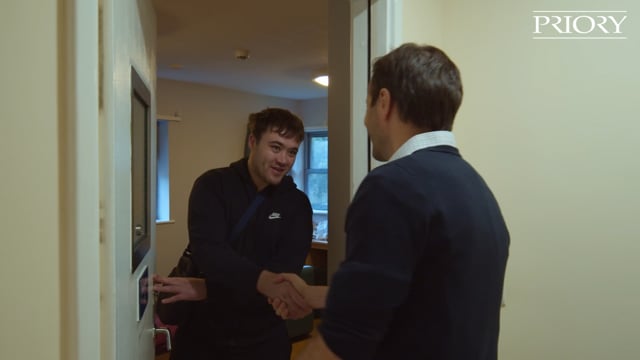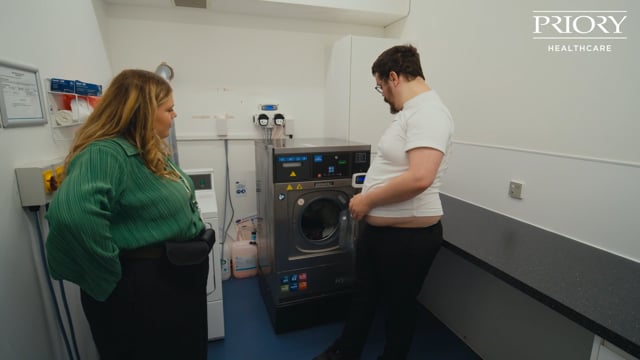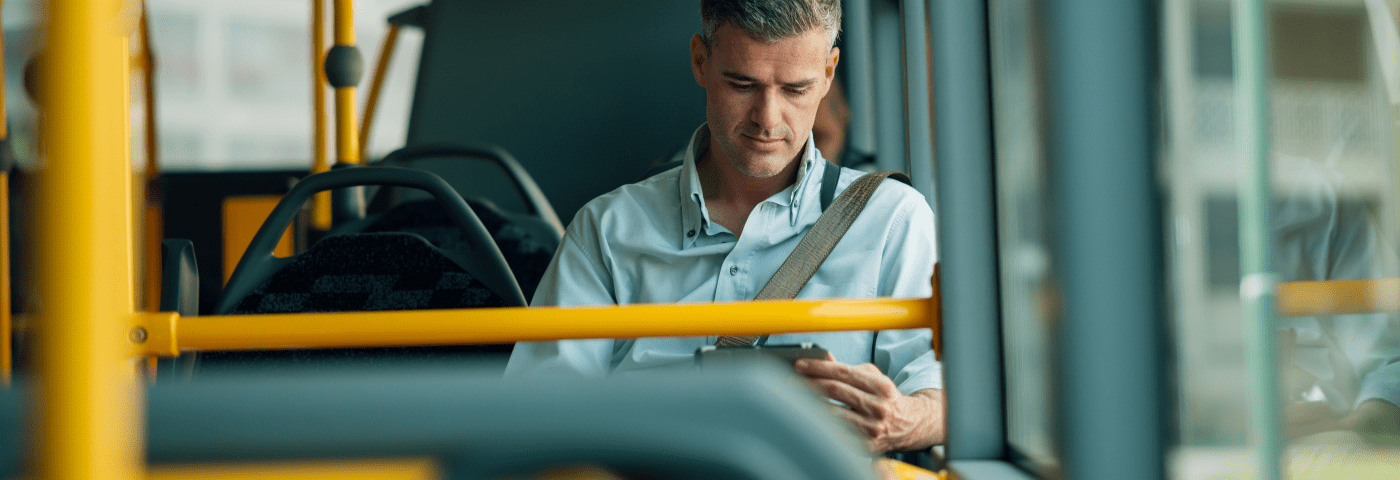About this location
Set in a semi-rural location in Hook, Hampshire, and surrounded by oak trees, Priory Hospital Mildmay Oaks supports the NHS by providing low secure services and specialist learning disability and autism spectrum support for both male and female patients. We also offer adult and child and adolescent mental health services (CAMHS) across our single-person, bespoke therapeutic placements (BTPs).
Services at a glance
Click here to enable this content
Services
Our comprehensive rehabilitation services provide support for people with complex mental health needs. We align our services with the recommendations of the Joint Commissioning Panel for Mental Health (JCPMH), ensuring our patients are given the highest quality care to enable an appropriate transition back home or into community services, wherever possible.
We strive to deliver patient-centred, holistic care in order to support our patients to become more independent. Our culture of excellence and quality, alongside our safe, secure and caring environment, allows us to do this.
As part of our R&R service at Mildmay Oaks, we also offer bespoke BTPs for those who require a single-person environment with tailored care for their complex needs.
Ward break down
- Heckfield – 8-bedded ward for adult males who are autistic and/or have a learning disability
- Eversley – 8-bedded ward for adult males who are autistic and/or have a learning disability
- Newnham – 10-bedded ward for adult females who are autistic and/or have a learning disability. We also provide 1 adult BTP on this ward, for either an R&R or low secure patient
Conditions treated
We are able to support people who are autistic or have a learning disability. We can also support people with the following challenges alongside their primary diagnosis:
- Severe and enduring mental health problems
- Depression
- Anxiety
- Bipolar disorder
- Psychosis
- Self-harm
- Sexual offending
- Substance misuse
We are able to support informal patients or those detained under the Mental Health Act (MHA).
Treatment approaches
At Mildmay Oaks, we offer an individualised, person-centred approach to all of our patients. Our assessment and treatment options are overseen by a full and diverse multidisciplinary team. We take an integrative approach to therapy, using a range of different modalities.
We offer:
- Positive behaviour support (PBS)
- Cognitive behavioural therapy (CBT)
- Occupational therapy (OT)
- Music therapy
- Art therapy
- Mindfulness
- Dialectical behaviour therapy (DBT)
- Compassion focused therapy (CFT)
- Eye movement desensitisation and reprocessing (EMDR)
- Sex offender treatment programme (SOTP)
- Sex offender treatment services collaborative - intellectual disability (SOTSEC-ID)
People within our R&R service tend to stay with us on a long-term basis, usually between 12 to 18 months. Our BTP services are transitional.
Our team
Our highly experienced, multidisciplinary team consists of:
- Director of clinical services
- Ward managers and deputy ward managers
- Registered mental health and learning disability nurses
- Healthcare assistants
- Occupational therapist and occupational therapy assistant
- Psychologist and psychology assistant
- Music therapist
- Art therapist
- Drama therapist
- Speech and language therapist
- Registered general nurse
- Consultant psychiatrist
- Specialty doctor
- Physical health nurse
- Dysphasia specialist
We also provide specialist staff training, including:
- Autism training, including the Oliver McGowan Mandatory Training on Learning Disability and Autism
- PBS training
- Epilepsy awareness
- Introduction to learning disabilities
- Clinical risk management
Therapeutic and community-based activities
We offer a range of therapeutic and community-based activities, as part of a full treatment programme. We want to support people to become more confident and independent, preparing them to move through their treatment pathway towards community living.
Our therapeutic and community-based activities include:
- Gardening
- Exercise classes
- Furniture upcycling group
- Real work opportunities programme
- Dance classes
- Yoga classes
- Visiting a chaplain
- Horse riding at the local farm
- Alpaca walking
- Birds of prey site visits
- Trips to the local community, such as the local swimming pool
Our facilities and environment
We believe that the environment in which treatment takes place is just as important as the treatment itself, when it comes to supporting our patients. We provide:
We also have specialised equipment within the hospital, such as sensory rooms and lighting, bean bags and interactive walls, for people to use.
Our bedrooms
Exclusion profile
People under the age of 18.
Pathways
Priory’s network of high quality facilities enables us to offer joined-up care pathways with our dedicated residential services. We offer programmes which integrate healthcare treatment and therapy, that are tailored according to individual needs, in an appropriate setting. Our strength is that we can provide a seamless transition for the individual as they progress between higher and lower dependency services.
We can support patients to step down into our community living services, which include Eastrop House, The Rectory Trowbridge, The Dunes, and Priory Radstock.
Our secure services offer comprehensive support to people with complex mental health needs. We model our service provision on the NHS secure service specification for medium and low secure services, ensuring our patients are given the highest quality of care to enable quick and smooth transitions into local services, wherever possible. We are committed to delivering clinically effective, evidence-based treatment programmes for individuals who require secure care, providing both psychological and physical security.
At Mildmay Oaks, we are dedicated to providing holistic and person-centred care to everyone we support, helping them to become more independent. Our safe and secure environments, caring staff team and culture of excellence, mean we’re well-placed to support people in their recovery.
Ward break down
- Winchfield – 14-bedded low secure ward for adult males with a learning disability and/or on the autism spectrum. We can also accommodate 1 adult bespoke therapeutic placement (BTP) on this ward, for either a secure or R&R patient
- Mattingley – 1-bedded adult BTP, for either a secure or R&R patient
- Bramshill 1 – 1-bedded Tier 4 CAMHS BTP
- Bramshill 2 – 1-bedded Tier 4 CAMHS BTP
Conditions treated
We are able to support people who are autistic or have a learning disability. We can also support people with the following challenges, alongside their primary diagnosis:
- Complex mental health problems
- Behaviours that challenge
- Complex needs
- Severe and enduring mental health problems
- Personality disorders
- Physical health needs
- Self-harm
- Sexual offending behaviour
- Substance misuse
- Forensic addictions
We are able to support informal patients or those detained under the MHA.
Treatment approaches
At Mildmay Oaks, we offer an individualised, person-centred approach to all of our patients. Our assessment and treatment options are overseen by a full and diverse multidisciplinary team. We take an integrative approach to therapy, using a range of different modalities.
We offer:
- Positive behaviour support (PBS)
- Cognitive behavioural therapy (CBT)
- Occupational therapy (OT)
- Music therapy
- Art therapy
- Mindfulness
- Dialectical behaviour therapy (DBT)
- Compassion focused therapy (CFT)
- Eye movement desensitisation and reprocessing (EMDR)
- Sex offender treatment programme (SOTP)
- Sex offender treatment services collaborative - intellectual disability (SOTSEC-ID)
People within our secure service usually stay with us on a long-term basis, usually between 2 to 3 years.
Our team
Our expert team consists of:
- Director of clinical services
- Ward managers and deputy ward managers
- Registered mental health and learning disability nurses
- Healthcare assistants
- Occupational therapist and occupational therapy assistant
- Psychologist and psychology assistant
- Music therapist
- Art therapist
- Drama therapist
- Speech and language therapist
- Registered general nurse
- Consultant psychiatrist
- Specialty doctor
- Physical health nurse
- Dysphasia specialist
We also provide specialist staff training, including:
- Autism training, including the Oliver McGowan Mandatory Training on Learning Disability and Autism
- PBS training
- Epilepsy awareness
- Introduction to learning disabilities
- Clinical risk management
Therapeutic and community-based activities
We offer a range of therapeutic and community-based activities, as part of a full treatment programme. We want to support people to become more confident and independent, preparing them to move through their treatment pathway towards community living.
Our therapeutic and community-based activities include:
- Gardening
- Exercise classes
- Furniture upcycling group
- Real work opportunities programme
- Dance classes
- Yoga classes
- Visiting a chaplain
- Horse riding at the local farm
- Alpaca walking
- Birds of prey site visits
- Trips to the local community, such as the local swimming pool
Our facilities and environment
We offer a place that helps people improve their wellbeing and recovery. Our supportive environment consists of:
Our garden is complete with secure fencing, a patio area with furniture, a lawn, planting areas, and outdoor gym equipment.
We also have specialised equipment and sensory items within the hospital, such as bean bags, for people to use.
Our bedrooms
All of our bedrooms are single-occupancy and have an en-suite bathroom. Patients are encouraged to personalise their bedrooms while they are staying with us. We provide:
Some rooms are wheelchair-accessible, and have their own wet rooms.
Exclusion profile
People under the age of 18.
Pathways
Priory’s network of high quality facilities enables us to offer joined-up care pathways with our dedicated residential services. We offer programmes which integrate healthcare treatment and therapy, that are tailored according to individual needs, in an appropriate setting. Our strength is that we can provide a seamless transition for the individual as they progress between higher and lower dependency services.
We can support patients to step-down into our rehabilitation and recovery (R&R) service at Mildmay Oaks, where appropriate. We can also facilitate step-down into our community living services, which include Eastrop House, The Rectory, The Dunes and Priory Radstock.
At Mildmay Oaks, we provide BTPs for adults and young people, who are autistic and/or have a learning disability. Individuals may present with complex needs, including aggression and sensory issues, and may benefit from the time and space to learn how to self-regulate their own emotions.
The main aim of our BTPs is to offer an environment with the least restrictive practices, where patients who are struggling in a group environment can develop their independence skills, enabling them to transition to community living, when possible. For more information on Priory’s BTPs, view our dedicated BTP page.
BTP break down
- Winchfield – 1 adult BTP on this ward, for either a secure or R&R patient
- Mattingley – 1-bedded adult BTP, for either a secure or R&R patient
- Bramshill 1 – 1-bedded Tier 4 CAMHS BTP
- Bramshill 2 – 1-bedded Tier 4 CAMHS BTP
- Newnham – 1 adult BTP on this ward, for either an R&R or low secure patient
A message from our site leader

Mildmay Oaks is not simply a hospital. It is a community that works together to achieve the best for the patients we care for. We believe nothing is impossible when it comes to helping our patients achieve as independent a life as they can
Mildmay Oaks’ site leader
Comments from our patients and their family and friends
My stay at Mildmay Oaks is excellent. I go out a lot on community trips, to the places of my choice
It’s been a challenge, with lots of ups and downs. But with the support from clinical staff, I manage to achieve most of my goals. Staff are spot on with meeting my needs. I will not change my care from what I am getting at Mildmay Oaks
Information for family and friends
How do home visits work?
We help to arrange home visits and encourage family and friends to remain in contact with the patient while they’re staying with us.
What is your visitation policy?
We are flexible with visiting times, although we do ask that visits are organised around any planned treatment. We also need 24 hours’ notice before a visit takes place. Our visiting times are usually:
- 10am to 12pm, and 2pm to 4pm – Monday to Friday
- 10am to 4pm - weekends
Will I be involved and kept up to date with my loved one’s care and wellbeing?
Yes - we make every effort to keep the loved ones of our patients involved in their care, if this is in line with the patient’s wishes. Anyone is welcome to visit site before an admission as well as while the person is staying with us. We also encourage family and friends to take part in ward rounds, care programme approach (CPA) meetings and discharge planning.
Will my loved one be able to have a phone or call me?
People staying with us may be allowed to use a mobile phone on the ward and in the community; the decision around this will be in line with any risks and the level of security of the ward.
What type of things are families expected to provide, and what is provided by the home?
We provide all furnishings and food on-site, and encourage patients to individualise their space with their own artwork, décor and soft furnishings.
What are the bedrooms like?
All of our bedrooms are furnished, and residents are supported to personalise them to suit their needs and wishes. They are all single person, en-suite rooms.
Are external doors kept locked?
All of our external gates are locked. However, every person staying with us will be individually assessed for any risks to see what security is needed. We have a large garden area and courtyard where people can exit and enter the building when they want, with staff supervision.
What do service users eat and how do meal times work?
We have our own catering team with a full menu that changes every week, supporting everyone’s diet choices. All meals are eaten on the wards in a dining room. Meals are served at 8am to 9am for breakfast, 12pm to 1pm for lunch and 5pm to 6pm for dinner. People can have their own choice of snacks, which they can buy either in the community or from our tuck shop. A number of patients across the site also do their own shopping and cooking as part of their rehabilitation, to prepare them for life in the community.
How does laundry work?
We have laundry facilities, so everyone can do their own washing and drying, free of charge. For larger items, such as bedding and towels, this is managed by our housekeeping department within our main laundry room.
Is there anything they can’t bring or have?
We have a restricted and prohibited items list, which is reviewed and updated regularly. This can be seen on request.
Are pets allowed?
Patients are allowed to have their pets come to visit. This should be pre-arranged and happens outside in the hospital grounds. We have a marquee available during the winter months so pets can visit throughout the year. At site, we also have two guinea pigs called Smokey and Peanut, as well as our dog, Ralph, who is currently working towards his pet therapy training.
How do activities work?
All patients have an individualised activity programme, which works on a rolling 12-week cycle. During the 13th week, we will review the activities, allowing for evaluation and patient feedback.
Do service users and families have an input into the service user’s care plans?
All of the people staying with us and their families/friends are invited to attend ward rounds and CPA meetings. They are actively involved in care planning, supported by their primary nurse and the wider multidisciplinary team.
What are the car parking facilities?
There is plenty of free car parking on-site.
What is the smoking policy? Can service users buy cigarettes?
Mildmay Oaks is a non-smoking site. Any patients with unescorted leave, or family members wishing to smoke, can do so outside of the hospital grounds.
How is treatment accessed and funded?
We don’t take referrals directly from individuals and families. Instead, the first step will be for you to reach out to the person’s GP so that they can be referred and funded through the correct NHS channel. Depending on the type of support needed, this could include local authority funding, NHS funding, joint funding between the local authority and NHS, or direct payments. Please note, referrals for NHS or local authority funded services must come from a referring organisation.
How to make a referral
Our customer service centre provides 24/7 support for NHS mental health enquiries and referrals. Our customer referral co-ordinators can support you from your first call right through to the enquiry conclusion, providing updates throughout the process. We offer 24/7 crisis referrals, fast access to bed availability and placements, and a single access point for end-to-end enquiry management.
















